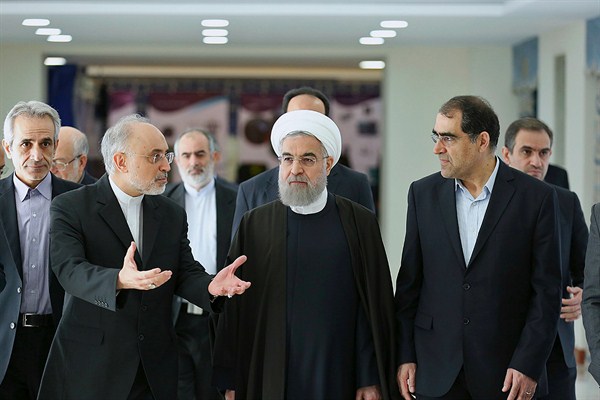July 14 was the first anniversary of the historic nuclear accord between Iran and the group of world powers known as the P5+1—the U.S., China, Russia, France, the United Kingdom and Germany. For the first time, the deal put in place significant curbs on Iran’s nuclear program in exchange for relief from crippling international sanctions.
The deal, and its subsequent implementation so far, have been hailed by a wide number of national security luminaries, nuclear nonproliferation analysts and the vast majority of the global community. But opposition to it, particularly among foreign policy hawks in the United States, Israel and the Arab Gulf states, remains significant. Who is right?
In evaluating the success of the deal a year since its signing, it’s important to be clear about what the nuclear diplomacy set out to achieve and to what extent that has happened. This verdict came from the International Atomic Energy Agency (IAEA), tasked by the P5+1 and the U.N. Security Council with monitoring compliance with the deal—officially called the Joint Comprehensive Plan of Action, or JCPOA—on Jan. 16, the agreement’s “implementation day.” The IAEA said that Iran had abided by the main components of the accord to dramatically scale back its nuclear program. In exchange, it was granted access to its own frozen assets, upward of $100 billion.

